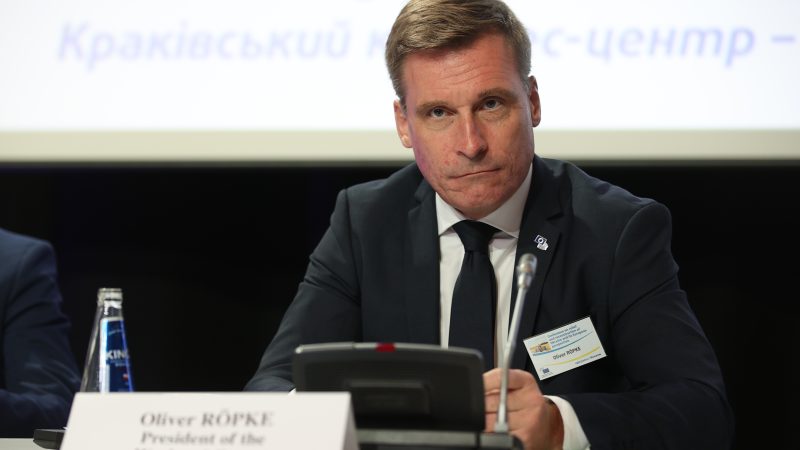Youth participation in policy-making should be “permanent”, said Oliver Röpke, president of the European Economic and Social Committee (EESC), in an interview with Euractiv, adding that it should not serve as a “red herring”.
The EESC, an EU consultative body made up of representatives of workers’ and employers’ organizations and other interest groups, is the first institution to implement an “EU Impact Assessment of young people’s point of view. This participatory tool aims to get young people and youth organizations to write opinions which will then be taken into account in the EU legislative process.
“During the last mandate, we already made clear our intention to promote the participation and contribution of young people,” Oliver Röpke explained to Euractiv.
The “EU Youth Dialogue”, another participatory tool set up by the European Youth Forum, was implemented in 2009 to facilitate dialogue between young people and legislators.
The EU Impact Assessment from a youth perspective aims to give young people and youth organizations the opportunity to participate in decision-making, especially those that will affect their lives in the long term. This assessment will allow them to give an opinion on issues such as climate change.
“The fight against climate change is a subject that is of great interest to young people,” said Mr. Röpke. “This is why we always called on one of their delegates [during the COP climate conferences], which greatly contributed to opening our minds. »
A call for applications has been launched online for young people aged 18 to 30. A panel within the EESC will examine the applications and the final decision for the selection will rest with the Bureau, composed of the president and 19 elected members.
Towards a permanent structure
The assessment of youth already featured in Mr Röpke’s manifesto, published when he was appointed president of the EESC last April.
“In my manifesto, I committed to establishing a permanent structure for young people within the institution,” said Mr. Röpke.
Regarding the practical implementation of the evaluation, participants are invited to think about other permanent methods to include young people in the decision-making processes of the Union. The CESE Youth group will enable the latter to continue the implementation of youth assessments beyond the pilot projects already in progress.
Rather than seeking young people’s opinions on an ad hoc basis, Mr Röpke said the Youth EESC should provide a more permanent and structural solution to the inclusion of young people’s voices in the review of legislation.
“I think we cannot do this only on an ad hoc basis, that would be very insufficient,” Mr Röpke said. “The presence of young people should be the subject of a major decision here in the chamber. »
Evaluation, not a subterfuge
Among the main aspects of the EU impact assessment from the perspective of young people, Mr Röpke notes that it “must not be a red herring for our activities”. On the contrary, it should add to existing participatory tools without replacing them or avoiding the relevant questions currently being asked.
“Gradually, we want to become a meeting point for civil society and youth organizations,” added Mr. Röpke.
The implementation of this evaluation concerns the Member States, but also the United Kingdom and the candidate countries for membership of the EU.
“I think we can all agree that the geopolitical context has changed radically,” said Mr. Röpke. “We can see today, enlargement is on the political agenda, even if it will not take place today or tomorrow. It will happen in a few years, and Europe must position itself.”
“It is perhaps a little easier for us to involve our partners from the candidate countries, but I think others should follow,” said Mr Röpke, emphasizing the limited power of the EESC, which only provides consultations on EU policy making.
While the assessment seeks to capture diverse voices based on geography, age, gender and balance of interests, it has not put in place measures to ensure racial diversity, sexuality and abilities.
This article is originally published on euractiv.fr


